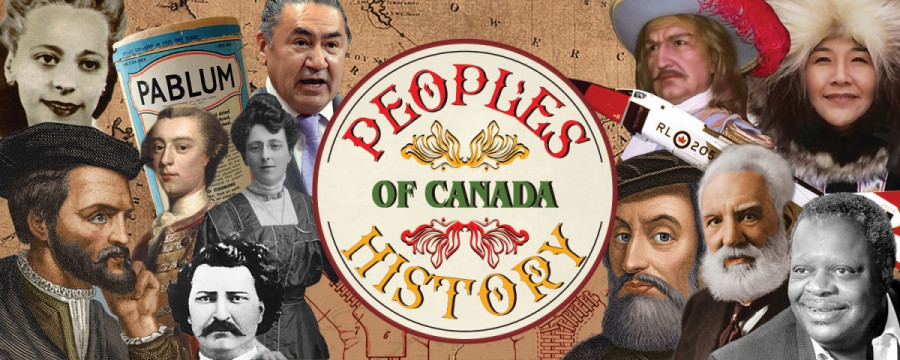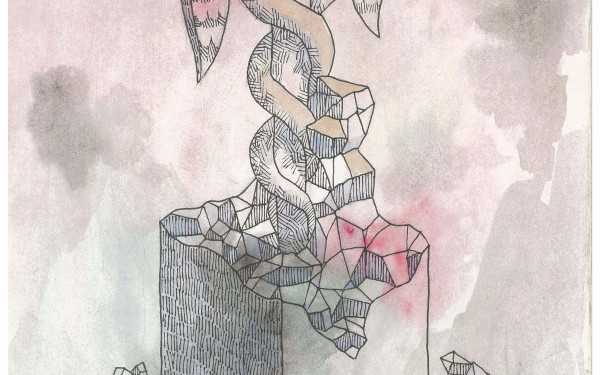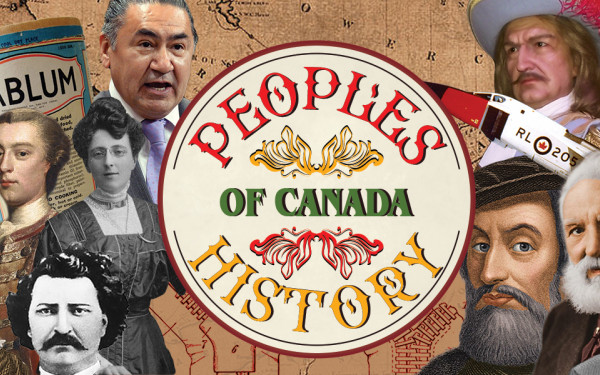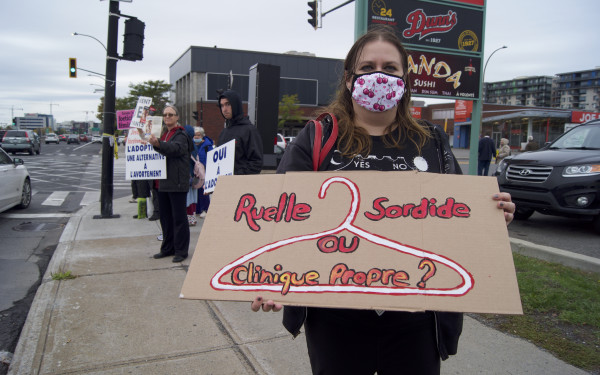Morgentaler’s Fight for Abortion Rights
A People’s History of Canada Column
Thirty-one years ago, on Jan. 28 1988, the Canadian Supreme Court overturned the law which had previously criminalized abortions.
This gave women the ability to get unrestricted access to abortion from their healthcare provider, and is a decision we can attribute in part to the work of Dr. Henry Morgentaler, and the countless women who fought for self-determination.
The reason it is decriminalized, rather than legalized, stems from the fact that while the law against abortion in Canada was deemed unconstitutional in 1988, no other laws have been put in place federally to dictate when and where Canadians can get abortions, meaning that abortions can be performed in private clinics or public hospitals, and the procedure is itself publicly funded under the Canada Health Act.
In the ruling of R. v Morgentaler in 1988, Justices Brian Dickson and Antonio Lamer stated that, “state interference with bodily integrity and serious state-imposed psychological stress, at least in the criminal law context, constitutes a breach of security of the person. Section 251 of the Criminal code […] was found to clearly interfere with a woman’s physical and bodily integrity. Forcing a woman, by threat of criminal sanction, to carry a fetus to term unless she meets certain criteria unrelated to her own priorities and aspirations, is a profound interference with a woman’s body and thus an infringement of security of the person.”
Today, it is fairly straightforward to get access to abortion care in Montreal, and many women do seek this care. The Morgentaler Clinic, for example, is one of the best known locations in Montreal to access these services, and they even offer access to IUD insertions after surgical abortions. In 2017, Mifegymiso, a drug that can end a pregnancy at home up to 49 days after becoming pregnant, more commonly known as the abortion pill, was made available in Quebec by prescription, and it is covered by the Régie de l’assurance maladie du Québec. Of course, getting simple and accessible abortion care was not always this simple, and it’s still an issue to this day. But, we have come a long way, in part due to the decades-long fight for abortion rights from Henry Morgentaler, both inside the courtroom and in his own medical practice.
Morgentaler was born in Lodz, Poland in 1923. His birthplace and hometown was turned into a Jewish ghetto under Nazi occupation. He survived internments at Auschwitz and Dachau, but his parents, who were socialist activists, did not.
He came to Montreal in 1950 with $20 U.S. and some books to his name along with his wife, Chava Rosenfarb, a Yiddish writer. Despite all these setbacks and hardships, he completed his medical studies at the Université de Montréal in 1953.
Morgentaler was president of the Humanist Fellowship of Montreal, and publicly urged the Parliamentary Committee on Health and Welfare to repeal the laws against abortion in 1967. Many women subsequently contacted him for abortion services after his parliamentary appearance, which he began to provide in 1968 in his own clinic.
In 1969, his practice became centered around family planning. Morgentaler performed abortions illegally, while also offering vasectomies, IUDs, contraceptives, and general family planning advice.
Morgentaler was defying the law, risking his practice, his license, and his freedom for what he felt was the moral and right thing to do.
Morgentaler was defying the law, risking his practice, his license, and his freedom for what he felt was the moral and right thing to do for these desperate women seeking the important procedure for a variety of reasons and who, otherwise, would have had to go by unsafe means to get abortions.
Over his lifetime, Morgentaler opened eight clinics across Canada. He had a complex relationship with women due to his relationship with his mother. Morgentaler told The Globe and Mail in 2003, “I knew I could not save my mother, but I could save other mothers. […] If I help women to have babies at a time when they can give love and affection, they will not grow up to be rapists or murderers. They will not build concentration camps.” He admitted in Toronto, in front of an audience of supporters during a speaking tour as an activist, to having performed over 5,000 illegal abortions. Morgentaler was so bold that he even wrote a letter to prime minister Pierre Elliott Trudeau, admitting to the abortions and methods used. On Mother’s Day 1973, W5 on CTV broadcast an abortion being performed in his clinic—a courageous public display of disobedience, leading to a police raid of his clinic and his arrest along with staff and patients.
He faced charges for performing illegal abortions, first in 1970. A jury acquitted him three years later, but the Quebec Court of Appeal overturned this verdict, which sent him to prison on an 18 month sentence in 1975. That same year, Canadian law was changed so that jury verdicts couldn’t be overturned in appeal anymore. Morgentaler was released from prison 10 months into his sentence, weighing 15 pounds less than before his incarceration, after suffering a heart attack.
He had lost his license to practice in Quebec, and was heavily in debt to lawyers and the government in back-taxes all while losing his marriage. He travelled across the country, opening clinics, performing abortions, and getting arrested, charged, and acquitted, defying the law in the name of helping women and doing what he felt was morally right by challenging the laws in place.
It became difficult to argue abortion was unsafe, as Morgentaler was providing abortion care safely, in large numbers. Eventually, these challenges to the law gave way to the law against abortion being struck down, and abortion was then decriminalized. The amount of legal issues facing Morgentaler gave rise to questioning why he was even being charged in the first place. Public discussion was sparked, and people began to also challenge this law, women especially.
When the Supreme Court repealed the law banning abortion on grounds of unconstitutionality in 1988, Morgentaler said it was “a vindication of everything I believed in. For the first time, it gave women the status of full human beings able to make decisions about their own lives.”
Where does this leave us today? While not illegal, the question of access to abortion remains an important one, and it is patchy across the nation. There may be no law that restricts access to abortion, but there is no federal law ensuring access, either. It is up to the provinces to decide how they will set up abortion access, and it is not the same everywhere. While a person living in Montreal can easily access the service, a person in rural Atlantic Canada has no such guarantee of reliable abortion services.
According to research done by The Star in 2017, only one in six Canadian hospitals perform abortions. Some provinces do not even have abortion clinics, and New Brunswick refuses to fund the ones performed at their few private abortion clinics where procedures may cost a few hundred dollars. New Brunswick covers surgical abortion only if done in one of two hospitals, in Moncton or Bathurst, which are urban centres. Prince Edward Island had never even offered abortion services officially in its territory before 2017.
The aforementioned abortion pill was considered safe and was made available in both France and China in 1988, but only approved by Health Canada in 2015. Quebec only just began to acquire and cover it. This pill in itself could be instrumental in bridging the access gap and assisting women in rural areas, or areas where services are difficult to access.
This is now a more affordable alternative to out-of-pocket surgical abortion in places like New Brunswick, and could also prove lifesaving for women in precarious situations who need to take it in anonymity. The procedure to obtain this pill could also be simplified and offered through school clinics and other public institutions to women in need.
While access to abortion has come a long way, and Canadian women now can decide for themselves with nearly no obstructions, we still have a ways to go. Some argue it should remain decriminalized to avoid the possibility of undue additional regulations that could be put in place to obstruct access. Others argue it should be legalized to provide a guarantee of availability of abortion services.
One thing I can conclude is that the access to abortion needs to be more evenly made available across the country. The abortion pill being available in public health institutions, like school clinics and walk-in clinics, would achieve this goal in minimizing access issues that surgical abortions may pose.







